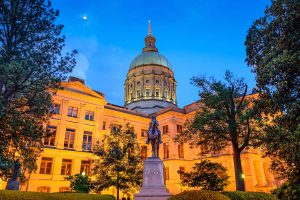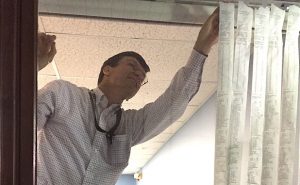A legislative committee studying the effects of illegal immigrants on Georgia is looking at several potential issues to consider for the upcoming lawmaking session.
Peachtree City Republican Matt Ramsey, who co-chairs the committee, said the committee is still in an information gathering mode. But the committee is looking at a variety of areas, including a process by which Georgia law enforcement officers would be able to verify whether a detainee is a citizen or not.
“Very likely there will be new penalties proposed and new statutes put on the books” to help law enforcement deal with illegal immigrants, Ramsey said.
The committee also is expected to propose a bill dealing with employment, perhaps requiring the use of the federal E-Verify system for all employees, including those in the private sector.
“I think employment is going to be a big issue on the table,” Ramsey said.
The committee is also going to be studying the effect of a bill passed four years ago to prevent illegal aliens from receiving state or local government benefits, Ramsey said. Particularly the committee is looking for any gaps in enforcement of that law, he added.
“It’s fair to say we have identified some things that can be better in terms of an enforcement aspect,” Ramsey said.
The committee will have another public hearing in about a week and a half before proceeding with development of the new legislation that will be proposed when the legislature convenes in January.
Rep. Tom Rice of Norcross last week proposed legislation that would prohibit the University System of Georgia from accepting illegal immigrants as students.
Ramsey said the immigration committee has asked the university system to provide data “and to let us know if it costs taxpayers one penny to allow illegal immigrants to attend our schools.”
Ramsey noted the Board of Regents recently has adopted a policy that forbids illegal immigrants from gaining admission to any of the system’s five research universities, but they may be admitted to any other state university, he added.
That, Ramsey said, “sends a message that we have a state institution knowingly sanctioning the attendance of citizens who are not in the country legally and by law can’t work when they get out.”










Leave a Comment
You must be logged in to post a comment.